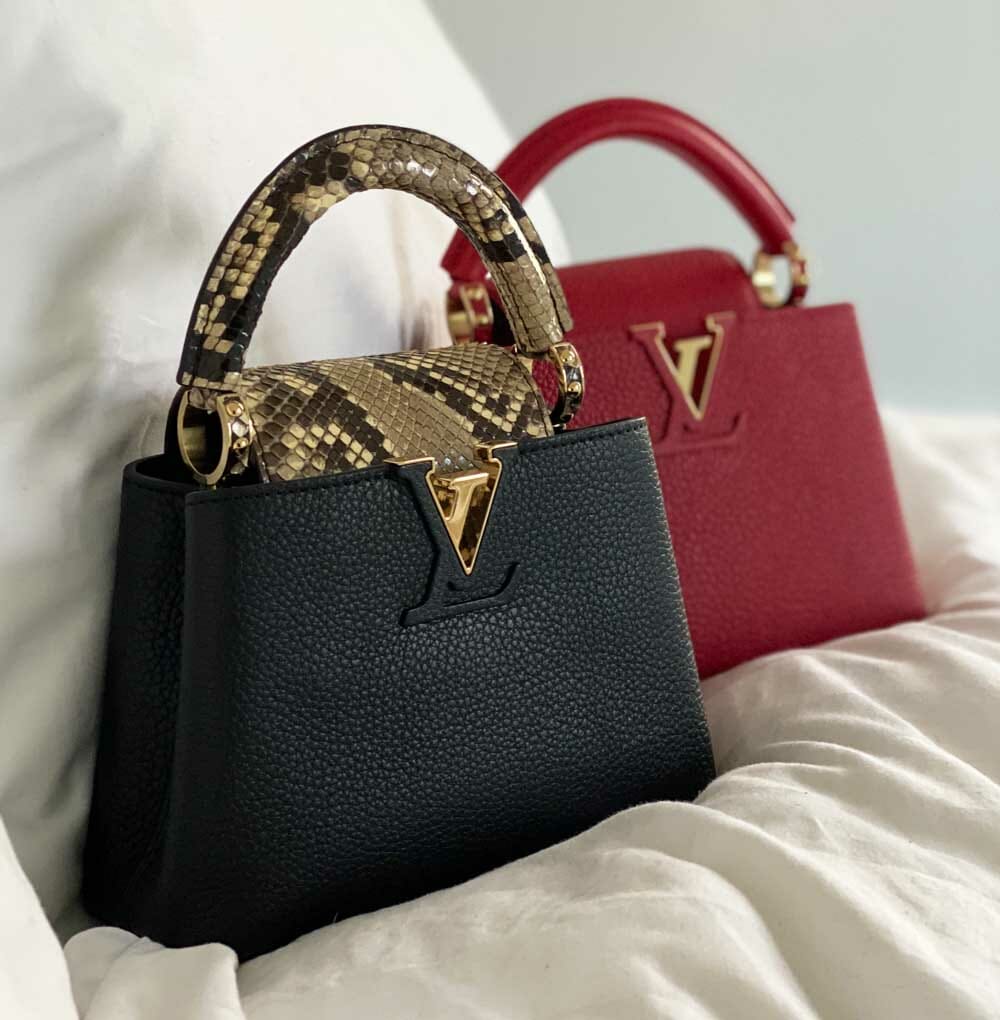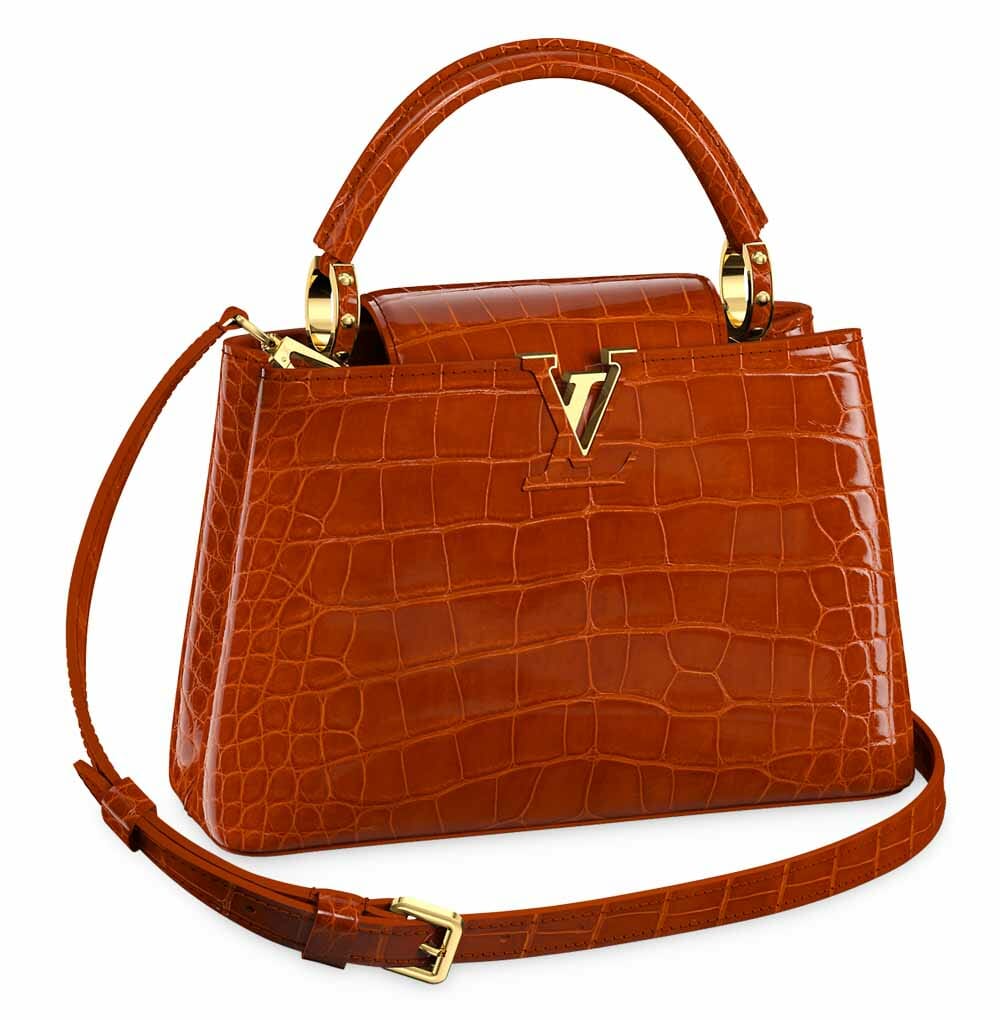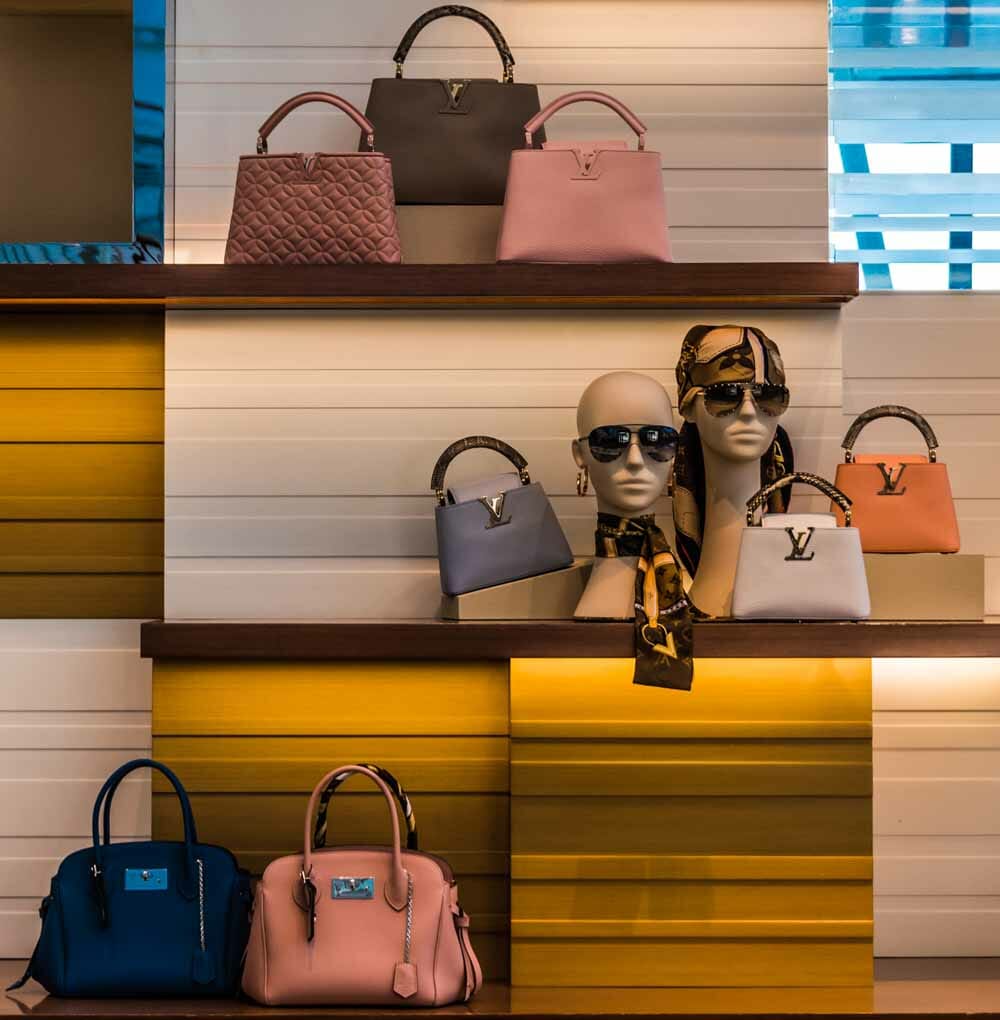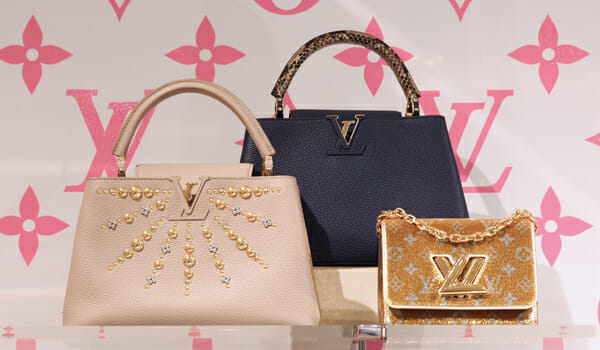When it comes to luxury fashion, animal skins are mostly used because of their high-quality nature and durability. Nothing screams luxury like real fur or a snakeskin purse, and brands like Louis Vuitton cater to this extravagance. But with more light being brought to animal welfare, people are beginning to question the ethics of companies’ practices. So, is Louis Vuitton cruelty-free? Leather, exotic skins, and fur are all synonymous with high-end luxury, so there is some pressure to provide this demographic with these products. However, organizations like PETA strive to bring awareness to hidden practices and expose the cruelties that animals face. They encourage companies to go vegan and put pressure on brands like Louis Vuitton to go cruelty-free.
Table of Contents
Is Louis Vuitton Cruelty Free?
Although Louis Vuitton itself doesn’t participate in animal cruelty, they conduct business with sources that do engage in the mistreatment of animals. When questioned about the stance that LV takes when it comes to the treatment of animals for their skins, the CEO responded by saying that all animals used for their products are humanely farmed. However, PETA has conducted several exposes and has proven this to not be the case.
Is Louis Vuitton Leather Cruelty-Free?
The use of leather is abundant in most Louis Vuitton products. From handbags to shoes to belts, leather is used in a wide variety of their products. One of the main sources for Louis Vuitton’s leather is the abattoirs in Kano Nigeria, which supplies some of the highest quality leather worldwide. The practices in this region are mostly humane, slaughtering animals primarily for meat and secondarily for leather skins. The livestock used for leather are mostly free-roaming and live in nomadic, grass-grazing conditions. The livestock is cared for by their owners until they reach maturity at around two years of age when they are sold to the leather markets in the northern part of Nigeria. The abattoirs here participate in humane slaughtering where the process is conducted by hand without the use of stun guns or other torturous instruments. The animal is already deceased before the skinning occurs so no additional pain is endured by the animal, thankfully. The tanneries in this region export their leathers to several different countries all over the world. This industry provides jobs for many people in the region and is a way of life that they’re accustomed to.
Although these suppliers are ethical and humane, Louis Vuitton may utilize other suppliers whose ethical practices cannot be confirmed.
Does Louis Vuitton Use Animal Skin?

Louis Vuitton is well known for the use of exotic skins in their products; crocodile leather is a common and controversial one.
LV states that 80% of their crocodile leather comes from farms that have been certified by the LVMH Crocodilians Standard, which is the world’s first certification for crocodile leather. This standard is audited by third-party companies who ensure the following criteria are met:
– Conservation of the species and respect for the local communities
– Animal welfare throughout the entire lifespan of the animal
– Working conditions for employees
– Environment protection
It’s great that LVMH has a certification standard for 80% of their crocodile leather sources, but what about the other 20%?
In 2020, Peta revealed an exposed video about a crocodile farm in Vietnam that provides crocodile leather for many companies including LVMH. The conditions were deplorable; one farm depicted crocodiles in dirty cement encasements that were so small they couldn’t fit lengthwise, where they were housed for more than a year with little to no stimulation and filthy living conditions. Another farm housed dozens of crocs together in close quarters exposing them to aggressive behavior and disease due to unhygienic conditions.

Once deemed ready to slaughter, the animal is electrocuted and dragged away to be killed in a horrific manner; a reptile expert who watched the video reported that the death they endure is slow and painful, often feeling pain for hours until they finally die. Some farms even skin the crocs while they are alive, which is disturbing and unnecessary torture for these helpless animals. Sadly, similar farming practices exist for other species; ostrich, snake, chinchilla, and many other exotic species endure these fates because there is no industry standard to prevent the inhumane treatment.
Is Louis Vuitton Vegan?
Louis Vuitton is not a vegan brand and mostly does not currently make products for vegans. For cruelty-aware consumers, it’s worth mentioning that LV canvas bags are made from coated plastic, not leather. However, details such as straps and leather tabs inside of the bag are leather, thus making these bags unsuitable for vegans but they consist of less leather overall than a full leather bag.
Read more about What Louis Vuitton Bags are made from here.
Is Louis Vuitton Cruelty-Free in 2022?

In an effort to go in the cruelty-free and sustainable direction, Louis Vuitton has recently introduced its first vegan leather product; the Charlie shoe. This casual shoe is unisex and comprised of sustainable and eco-friendly materials; the upper is constructed mainly from corn-based leather, while the rest of the shoe is made up of recycled materials. The low cut version retails for £765 while the high tops cost £795.
Although far from being a cruelty-free company, LV joins several other brands that have gone in the eco-friendly direction, appealing to consumers who prefer to make a more conscious decision with their purchases.
It’s safe to say that LV has made an effort to reduce the inhumane treatment of the animals used for their products – but more steps need to be taken by them as well as other industry leaders in order to greatly reduce and hopefully eradicate the inhumane treatment of animals for the fashion industry. There is some responsibility placed on the consumer; as long as there is a demand for these products, brands will continue to produce them without a need to disclose their methods of acquiring the raw materials.
This is not an excuse for the industry, but with no one holding them accountable they will continue to turn a blind eye towards animal cruelty for the sake of sales. As organizations like PETA continue to bring light to the horrific farming practices of exotic animals, pressure is placed on the industry to make changes for the sake of these helpless creatures. The consumer ultimately holds the power and as more people become educated about these issues, brands have no choice but to appease their customer base so that they don’t lose business.
Cruelty Free Luxury Brands
Most big fashion houses in the world currently don’t have a vegan range of products to choose from. The biggest and most well-known designer brand that does offer all-vegan products including luxury bags is Stella McCartney.

